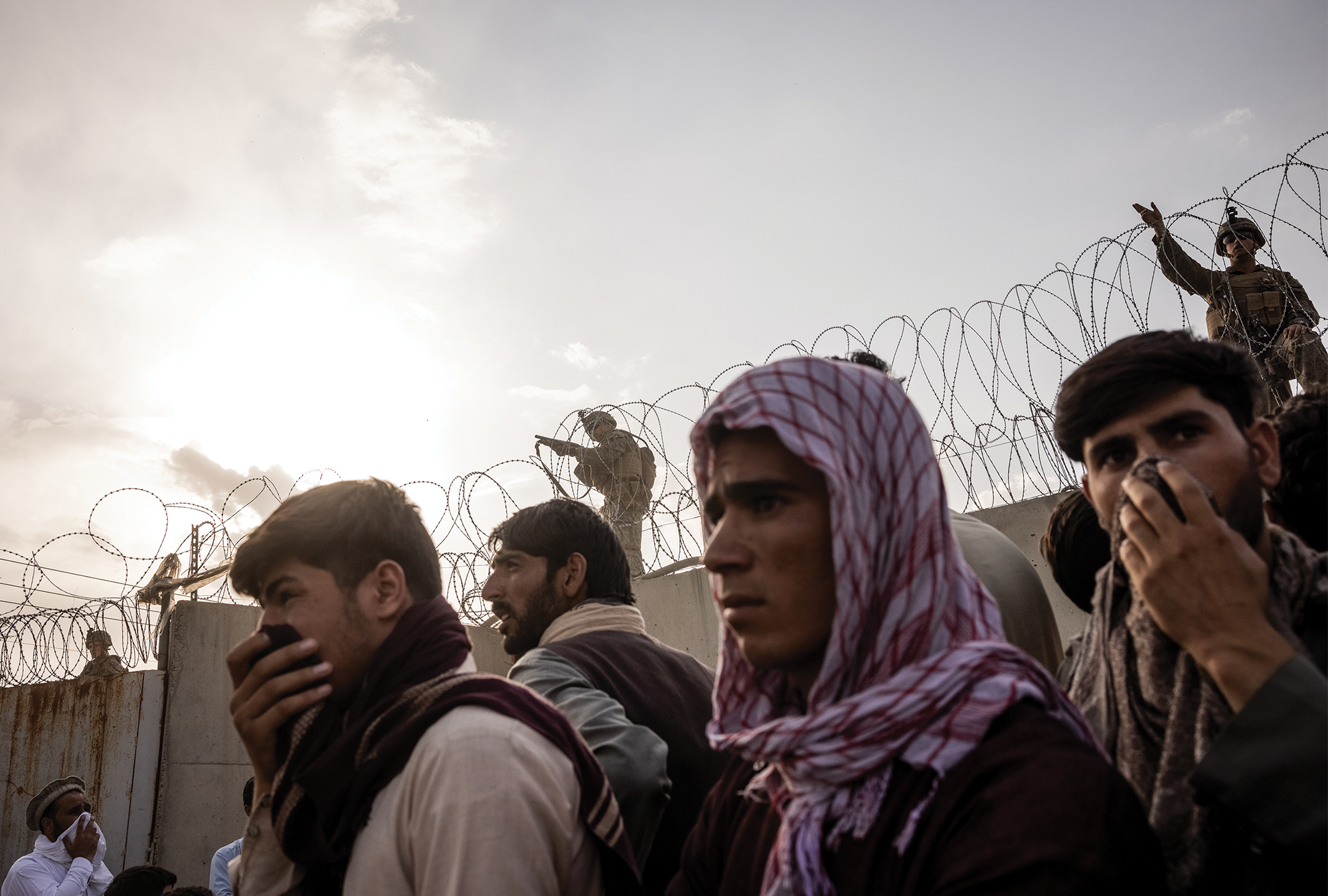
U.S. soldiers aim at a man who tried to climb the wall at Hamid Karzai International Airport in Kabul, Afghanistan / Jim Huylebroek / The New York Times
The War In Afghanistan Carried On Our Greatest Sin
David Cortright is director of the Global Policy Initiative at Keough School of Global Affairs at the University of Notre Dame. He spoke with Sojourners’ Jenna Barnett.
“I GRADUATED FROM university in 1968. I was drafted immediately. I had not really thought much about the war, but the more I talked to the guys who were coming back from Vietnam, the more I realized that this thing was terribly wrong. I began to think of the Vietnamese forces as liberation forces trying to free their country from foreign invasion—we were the invaders.
I went through a crisis of conscience. I saw a news report about soldiers who were speaking out against the war. I thought to myself, I can do that. I began to organize among soldiers in the barracks. We submitted a petition signed by 1,300 active-duty service members that was published in The New York Times.
The basis of my commitment to activism is faith: the belief that our role in life is to serve others, to overcome suffering and injustice, especially war, which to me, is the greatest sin.
9/11 was an international criminal conspiracy by extremist groups. The response should have been an international criminal investigation and policing methods rather than military methods. But the motive at the time was vengeance—a formula for a continuous cycle of violence.
This is nowhere more dramatically and tragically illustrated than the collapse of the U.S. military operation in Afghanistan. I’m hoping that this can be a wake-up call about the counterproductive nature of the strategies we employed against violent extremism. We’ve sent our troops on missions that cannot be achieved.
This is the time to create a new paradigm for the U.S. role in the world—to mobilize public opinion from both the Left and the Right, to call for the U.S. to end its policy of military interventionism, to reduce the size of the military, and to focus our approach on diplomacy and development on helping people in need rather than sending our military forces all over the world.”

Got something to say about what you're reading? We value your feedback!


